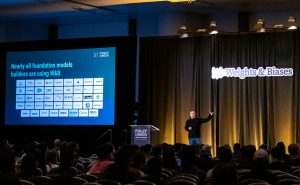VIENNA — Kapsch TrafficCom continues its trajectory of innovation by integrating Artificial Intelligence (AI) into its tolling and traffic management systems, aiming to enhance accuracy and efficiency in traffic operations, according to a press release published on EuropaWire.
This strategic move represents a significant leap forward in tolling and traffic management technology. By harnessing AI for real-time data processing and video analytics, Kapsch TrafficCom seeks to optimize traffic flow, ensuring safer roads for all users and promoting sustainable mobility.
Balazs Barnucz, Vice President of the Video Platform at Kapsch TrafficCom, underscores the transformative impact of AI integration: “Integrating AI into our solutions revolutionizes their capabilities, offering enhanced efficiency and a seamless experience for users. These advancements not only optimize revenue streams for toll operators but also contribute to a smoother, more equitable traffic experience for drivers.”
In a bid to bolster its AI capabilities, Kapsch TrafficCom has forged a strategic partnership with Hailo Technologies, a pioneer in AI processor development. This collaboration will see the integration of Hailo’s processors into Kapsch TrafficCom’s systems, boosting performance with low power consumption and high efficiency.
Chen Lowey, Europe General Manager at Hailo Technologies, expresses pride in the partnership: “We are honored to be selected by Kapsch as a technology partner to empower their tolling and traffic management systems with high-performance AI capabilities. This collaboration marks another milestone in our journey toward safer and more efficient roads through AI.”
This collaboration with Hailo Technologies underscores Kapsch TrafficCom’s commitment to leveraging cutting-edge technologies for smarter, more efficient mobility solutions, setting new benchmarks in the transportation industry.
This initiative aligns with Kapsch TrafficCom’s ongoing commitment to technology leadership in the transportation sector, aiming to reduce operational costs, improve traffic flow, and promote environmental sustainability.



















